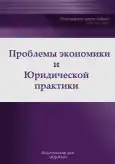Generating Natural Language Questions Using Neural Networks
- 作者: Malekova V.A.1, Romanova E.V.1
-
隶属关系:
- Financial University under the Government of the Russian Federation
- 期: 卷 18, 编号 2 (2022)
- 页面: 235-239
- 栏目: Articles
- URL: https://journals.eco-vector.com/2541-8025/article/view/532049
- ID: 532049
如何引用文章
详细
The article demonstrates the main known algorithms for autonomous generation of questions in natural language using neural network tools. Various methods for solving emerging difficulties, the mechanism of the model and the ways of implementation are considered. The results of applying the main algorithms and their analysis to improve the chosen method are presented.
全文:
作者简介
Victoria Malekova
Financial University under the Government of the Russian Federation
Email: vamalekova@fa.ru
Deputy head of department, Department of Data Analysis and Machine Learning Moscow, Russian Federation
Ekaterina Romanova
Financial University under the Government of the Russian Federation
Email: ekvromanova@fa.ru
Cand. Sci. (Phys.-Math.), Associate Professor, Deputy head of department for scientific work, Department of Data Analysis and Machine Learning Moscow, Russian Federation
参考
- Kumar V., Muneeswaran S., Ramakrishnan G., & Li Y.: ParaQG: A System for Generating Questions and Answers from Paragraphs. In: Proceedings of the 2019 EMNLP and the 9th IJCNLP (System Demonstrations), pp. 175-180. ACL, Hong Kong, China, (2019).
- Pennington J., Socher R., Manning C.: Glove: Global Vectors for Word Representation. In: Proceedings of the 2014 Conference on Empirical Methods in Natural Language Processing (EMNLP), pp. 1532-1543. ACL, Doha, Qatar, (2014).
- Devlin, J., Chang, M., Lee, K., Toutanova, K.: BERT: Pre-training of Deep Bidirectional Transformers for Language Understanding. ArXiv.org, https://arxiv.org/abs/1810.04805, last accessed 2021/03/11.
- Zhou Q., Yang N., Wei F., Tan C., Bao H., Zhou M.: Neural Question Generation from Text: A Preliminary Study. In: Proceedings of the National CCF Conference on Natural Language Processing and Chinese Computing, pp. 662-671 Springer, Cham, (2017).
- Rajpurkar P., Zhang J., Lopyrev K., Liang P.: SQuAD: 100,000+ Questions for Machine Comprehension of Text. In: Proceedings of the 2016 Conference on Empirical Methods in Natural Language Processing, pp. 2383-2392. ACL, Austin, Texas, USA, (2016).
- Papineni K., Roukos S., Ward T., Zhu WJ.: BLEU: A Method for Automatic Evaluation of Machine Translation. In: Proceedings of the 40th Annual Meeting of the Association for Computational Linguistics, pp. 311-318. ACL, Philadelphia, Pennsylvania, USA, (2002).
- Lin CY.: ROUGE: A Package for Automatic Evaluation of summaries. In: Proceedings of the ACL Workshop: Text Summarization Braches Out, pp. 74-81. ACL, Barcelona, Spain, (2004).
- Sun X., Liu J., Lyu Y., He W., Ma Y., Wang S.: Answer-focused and Position-aware Neural Question Generation. In: Proceedings of the 2018 Conference on Empirical Methods in Natural Language Processing, pp. 3930-3939. ACL, Brussels, Belgium, (2018).
- Zhao Y., Ni X., Ding Y., & Ke Q.: Paragraph-level Neural Question Generation with Maxout Pointer and Gated Self-Attention Networks. In: Proceedings of the 2018 Conference on Empirical Methods in Natural Language Processing, pp. 3901-3910. ACL, Brussels, Belgium, (2018).
- Song L., Wang Z., Hamza W., Zhang Y., Gildea D.: Leveraging Context Information for Natural Question Generation. In: Proceedings of the 2018 Conference of the North American Chapter of the Association for Computational Linguistics: Human Language Technologies, Volume 2 (Short Papers), pp. 569-574. ACL, New Orleans, Louisiana, USA, (2018).
补充文件








